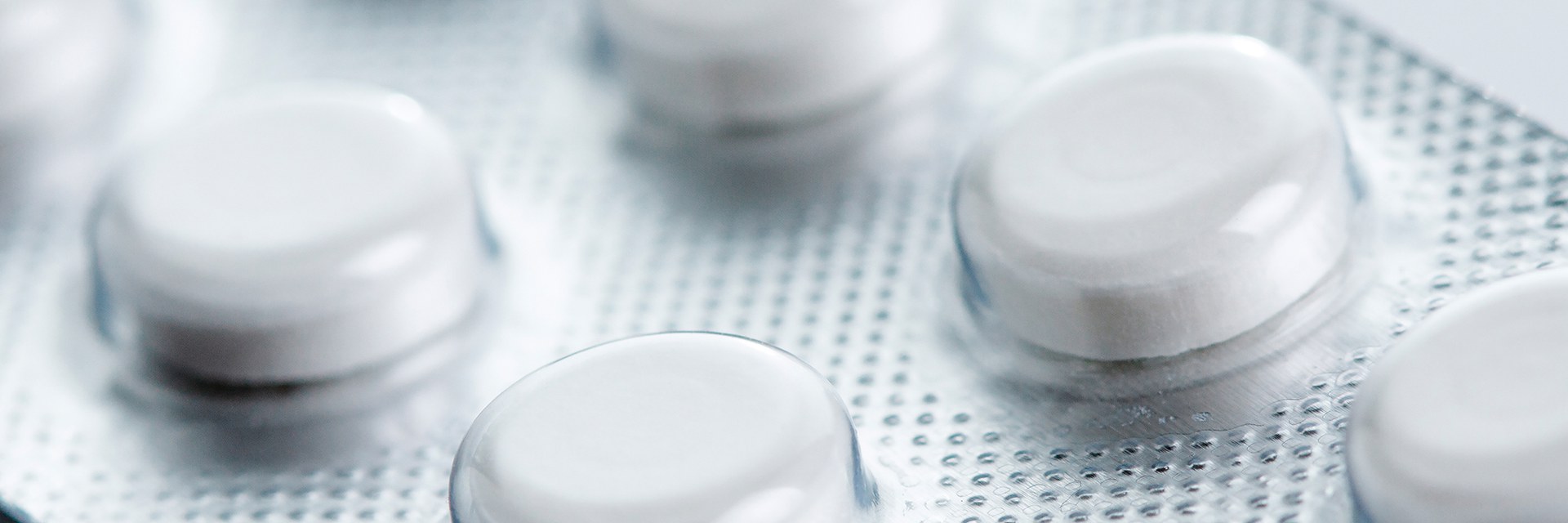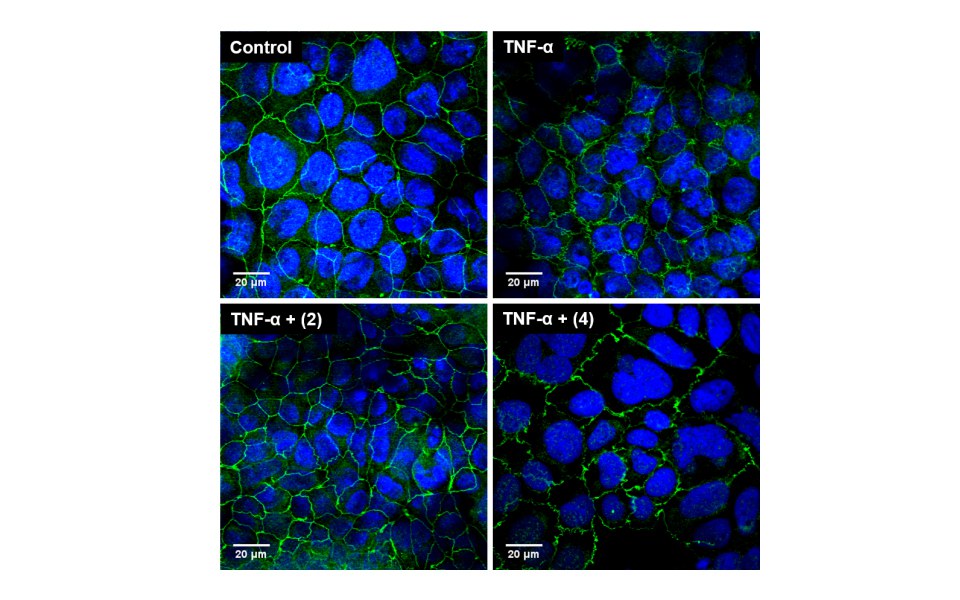
Restoration of intestinal barrier integrity
Effects of hops derived prenylflavonoids on TNF-α induced barrier dysfunction in intestinal epithelial cells.
The human intestine allows the absorption of nutrients while also functioning as a barrier preventing pathogens from entering the mucosal tissues. Increased intestinal permeability is associated with autoimmune, inflammatory, and atopic diseases. Tight junctions (TJ), which play a major role in barrier function, are specialized junctional complexes forming a seal between adjacent epithelial cells.
Hops is a source of prenylflavonoids, including 6- and 8-prenylnaringenin (1, 2), xanthohumol (3) and isoxanthohumol (4) for which a variety of biological activities have been described.
Of the tested compounds 1 and 2 prevented epithelial disruption, induced by TNF-α. Further, 2 was additionally able to restore TNF-α induced barrier dysfunction in Caco-2 cells.
Our results show for the first time that 2 found in hops attenuated a cytokine-induced increase in intestinal epithelial TJ permeability. As it is known that TJ barrier defects are involved in several diseases, dietary supplementation with hop derived prenylflavonoids might be an effective tool for the prevention and treatment.


